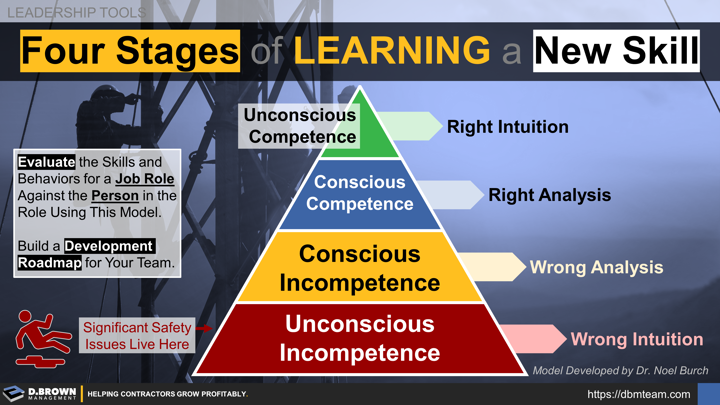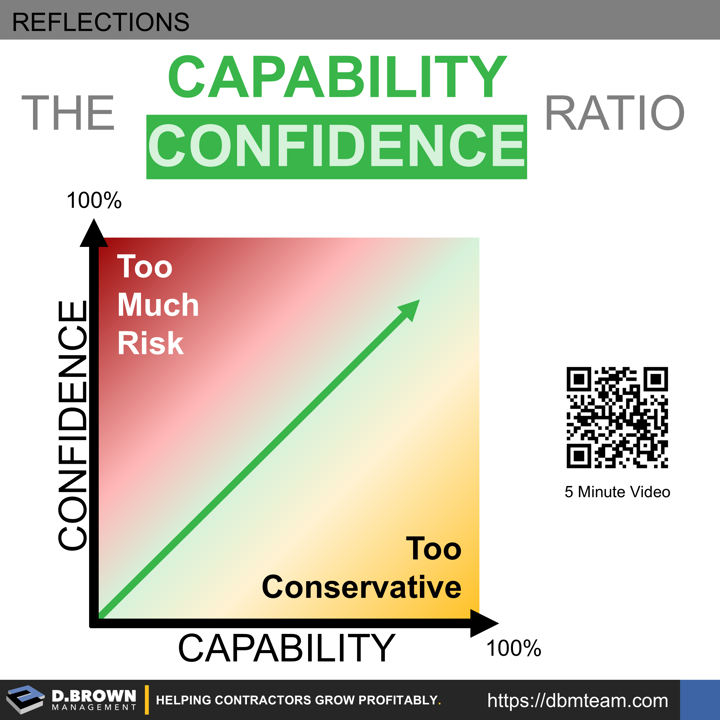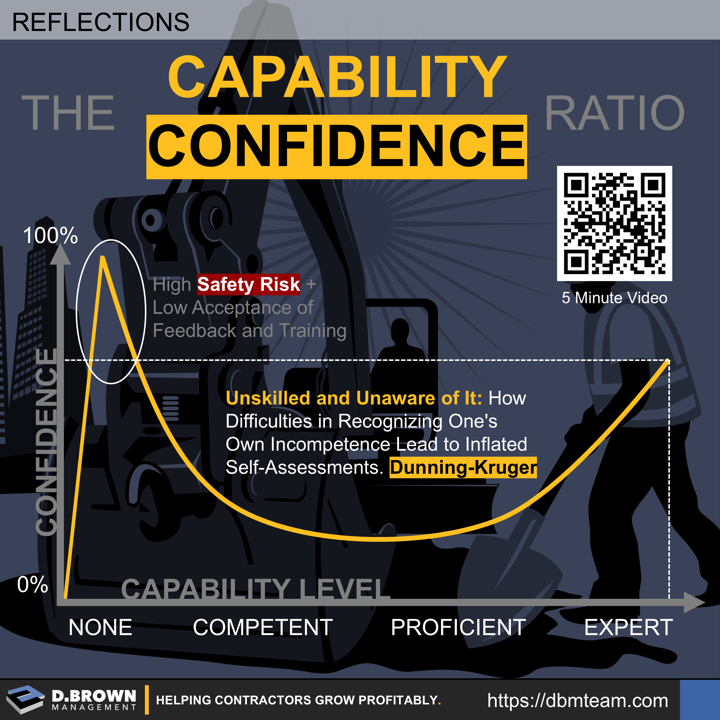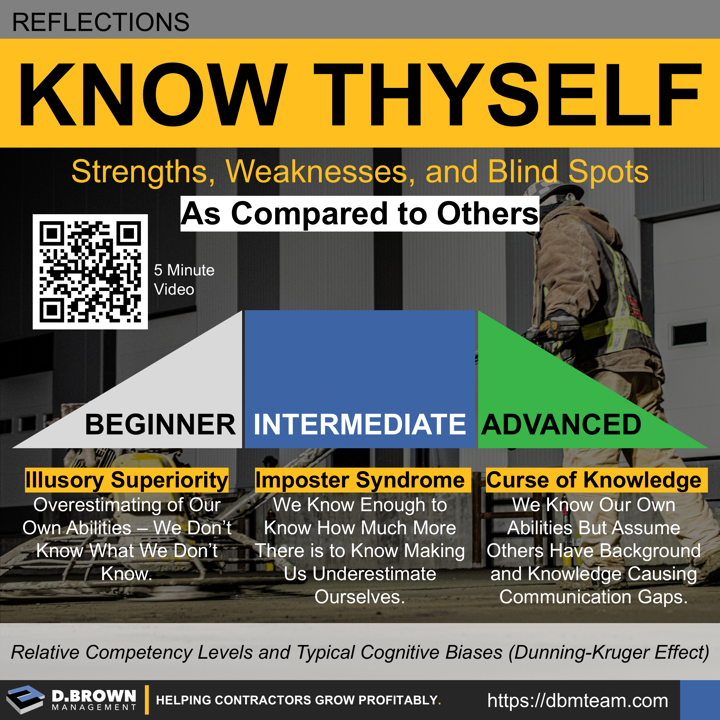In psychology, The Four Stages of Competence or "Conscience Competence" learning model describes the progression from incompetence to competence in learning a new skill. The model first appeared in the 1960s and was further developed in the 1970s by Dr. Noel Burch.
- Unconscious Incompetence: In this stage, people don’t understand what they are doing wrong because they lack both the skill and the awareness of it. Like an untrained operator attempting to run heavy machinery—errors occur because they don’t know what they’re missing. Even their gut feel (intuition) about what is required, or their performance is wrong.
- Conscious Incompetence: Here, individuals realize they lack the necessary skill. This is often the most uncomfortable stage but critical for growth. A construction manager, for example, may realize during a safety audit that their site inspections need improvement. They can see the outcome differences, but their analysis of the environmental details and actions required is wrong.
- Conscious Competence: At this stage, individuals have learned the skill but need to concentrate to perform it properly. A site supervisor might now know how to manage labor productivity but must continuously reference checklists or feedback to avoid mistakes. They are deliberately following a process to analyze the environment, make decisions, and take action.
- Unconscious Competence: At the final stage, people can perform the skill automatically. A seasoned construction foreman, for instance, can manage a project schedule efficiently without needing detailed instructions because it has become second nature.
Evaluate the skills and behaviors for a job role against the person in the role using this model. Build a development roadmap for your team.
EXCESSIVE RISKS
The level of "Unconscious Incompetence" represents significant safety risks on a jobsite or financial risks at the project management level.
OPTIMAL TRAINING
The best level for training and developing others is when someone has been at the point of "Conscious Competence" for a while. They deeply know and understand the process required to create the outcome so they can break it down into small, learnable chunks for someone new.
If someone has been performing at the "Unconscious Competence" level for too long, they may be producing great outcomes. However, if they have internalized too much of the process, they won't be effective at teaching others.
DUNNING-KRUGER EFFECT (COGNITIVE BIAS)
In 1999 David Dunning and Justin Kruger described the tendency of people with limited competence in a particular domain to overestimate their abilities. This cognitive bias is described well in the five-minute video below:
You can see the connections between this research and The Four Stages of Competence Model.
THE CAPABILITY:CONFIDENCE RATIO (OPTIMAL PERFORMANCE PATH)
The ideal performance path strikes a balance. Pushing beyond your abilities leads to excessive risk, while continuously underperforming results in missed opportunities and lower returns than you could safely achieve.
Note that for optimal learning, you will be intentionally pushing your performance above that perfectly balanced approach. Provide for "safe landings" and be deliberate in your practice so that you learn quickly from the misses rather than just building bad habits.
THE DUNNING-KRUGER CURVE (ACTUAL PERCEPTION)
Unlike the optimal performance curve, which balances confidence with capabilities, the Dunning-Kruger effect shows a rapid increase in self-perceived competence early on. This surge often comes with low acceptance to feedback and training, creating a high-risk zone. At best, this can lead to slow performance, and at worst, it can result in serious safety or business risks.
The middle part of the curve can also be problematic, where people are fully capable of performing at a higher-level but focus too much on what they don't know. This is where the discipline of management and leadership comes into play.
As someone approaches the "Expert" end of the competency level, they may struggle to related to beginners, assuming that what they know is "Common Knowledge." You see this a lot when a newer generation is being talked about by someone 2-3 generations older.
RELATED COGNITIVE BIASES
As beginners, we tend to experience Illusory Superiority, overestimating our abilities because we don't know what we don't know.
At the intermediate stage, we often face Imposter Syndrome, where we understand enough to recognize how more there is to learn, leading to underestimation of our own abilities.
At the advanced stage ("Experts"), we may experience the Curse of Knowledge, where we are aware of our abilities but assume others have a similar level of knowledge, causing communication gaps.




